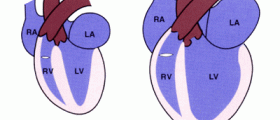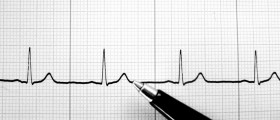
Inflammation of the heart muscle is medically known as myocarditis. It can be mild with less intensive symptoms or quite severe and associated with certain complications such as heart failure or arrhythmia.
The condition affects otherwise healthy individuals. Myocarditis is classified into acute myocarditis, chronic active myocarditis, chronic persistent myocarditis and fulminant myocarditis. Acute myocarditis leads to ventricular deficiency and may progress into dilated cardiomyopathy. Chronic active myocarditis is characterized with clinical relapses and associated with ventricular dysfunction and chronic inflammatory changes. In chronic persistent myocarditis there is no ventricular dysfunction even though there are symptoms such as chest pain and palpitations. And finally, fulminant myocarditis develops after a viral prodrome. It is responsible for severe cardiovascular compromise and ventricular dysfunction and may lead to lethal outcome.
Clinical Characteristics and Diagnosis of Myocarditis
Many patients report a previous infection accompanied by fever. They often turn to their doctors complaining about flu-like symptoms such as weakness, fatigue, shortness of breath with activity all of which point to some degree of heart failure.
The diagnosis of myocarditis is many times delayed because it develops as a result of initial infection. By performing a physical exam a doctor may detect rapid heart rate and by listening to the heart he/she can identify irregular or so called 'galloping' heart rhythm. Auscultation of lungs may point to the presence of fluid in lung tissue (pulmonary edema). Patients require additional tests and exams such as chest X-ray and Doppler echocardiogram. Definitive diagnosis is set after endomyocardial biopsy.
Acute Myocarditis Treatment
Treatment for myocarditis is symptomatic, meaning that it deals with current symptoms and signs of heart damage. In case the causative microorganism is known, patients may be treated with specific medications.
Patients with heart failure require different drugs such as digitalis, beta blockers, calcium channel blockers and antiarrhythmics. Diuretics, corticosteroids and anticoagulants may be administered as well. Additional measures include rest, plenty of sleep and reduction of stress. Severe cases of myocarditis cause irreversible damage to heart muscle and may be only treated with heart transplantation.
Prognosis and Potential Complications
Certain number of patients completely recover and damage to the heart muscle is minimal. On the other hand, others may develop progressive heart failure. Even when left untreated the condition may either resolve on its own or cause congestive heart failure and subsequent death. Similarly, in spite of proper treatment, even lethal outcome may be possible.
Complications associated with myocarditis include dilated cardiomiopathy, acute heart failure, cardiogenic shock and death.
















Your thoughts on this
Loading...